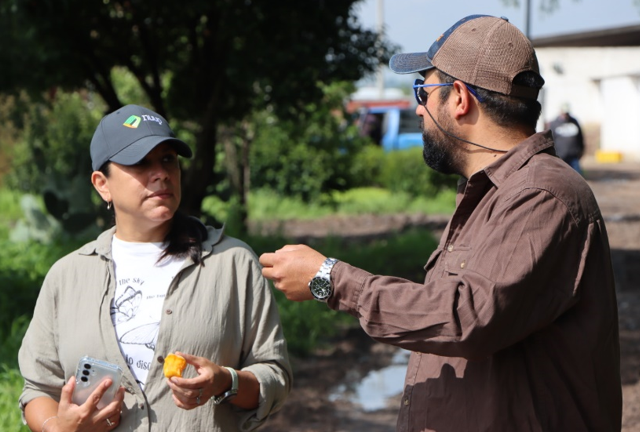By Fernanda Marmorek, CFO of Agua Segura
The water crisis is a silent but devastating threat to the private sector globally. The growing scarcity of this resource affects production, operating costs, and the viability of numerous industries. In particular, sectors such as manufacturing, agribusiness, mining, energy, and technology face significant challenges due to decreasing access to reliable water sources.
According to a WWF report, in 2021, freshwater had an estimated economic value of 58 trillion dollars, representing 60% of the global economy. However, this resource has historically been undervalued, leading to its excessive use and the degradation of water ecosystems. Overexploitation and pollution of water sources are generating adverse economic impacts for the private sector, increasing pressure on production costs and creating uncertainty in long-term investments.
Globally, the water crisis represents a significant threat to the economy. It is estimated that by 2050, around 46% of the world’s Gross Domestic Product (GDP) could originate in areas with high water risk, a significant increase compared to the current 10%. Furthermore, in 2018, economic losses related to water problems amounted to 38.5 billion dollars, although the actual impact could be higher due to a lack of data from many companies. In 2024, water-related disasters, such as floods and droughts, caused economic losses exceeding 550 billion dollars, in addition to the tragic loss of over 8,700 lives and the displacement of 40 million people.
Regions with the highest water stress include North Africa, where water extraction levels exceed 100% of available renewable resources. In Europe, approximately 20% of the territory and 30% of its population experience water stress each year, with Spain and the Mediterranean basin being the most affected areas. In Latin America, countries such as Mexico, Chile, and Peru face serious water challenges due to aquifer overexploitation and the impact of climate change on water availability.
How the Water Crisis Pressures Costs and Employment
The water crisis generates pressure on costs and employment mainly for three key reasons:
1. Increase in Operating Costs
Water is an essential input for many industries. When there is scarcity or restrictions on access to water sources, companies must seek more expensive alternatives, such as:
- Purchase of water from private sources
- Infrastructure for collection and treatment
- Fines and environmental regulations
Example: In the food and beverage industry, reduced access to water forces companies to pay more for the resource, which increases production costs and, consequently, final consumer prices.
2. Disruption in Production and the Supply Chain
When a company cannot access enough water, production is reduced or even temporarily halted. This can occur due to:
- Raw material scarcity
- Interruption in manufacturing
- Dependence on affected suppliers
Example: In Argentina, drought has reduced the yield of key crops such as soy and wheat, impacting not only farmers but also exports and companies dependent on these products.
3. Job Reduction and Effects on the Economy
When production decreases, companies face economic losses, which can lead to layoffs or reduced working hours. The most affected sectors include:
- Agriculture
- Industry and manufacturing
- Services and commerce
Example: In Lima, a study estimated that a 30% reduction in water availability could lead to the loss of over 35,000 jobs due to production contraction.
Technological Innovations and Soil and Ecosystem Restoration to Face the Water Crisis
Given the growing water scarcity, the private sector is adopting various technological innovations to mitigate the impact and improve efficiency in resource use. These solutions seek not only to guarantee the sustainability of water supply but also to reduce operating costs and optimize production processes in key industries.
In the agricultural sector, the application of artificial intelligence (AI) and advanced sensors in irrigation systems has proven highly efficient. These systems analyze soil moisture and climatic conditions in real-time, allowing for precise adjustment of water use and reduction of waste.
Another key innovation is the use of atmospheric water generators, which extract moisture from the air and convert it into potable water. Startups in Latin America and Africa are developing these technologies to supply communities and companies in high water stress areas.
Furthermore, wastewater recovery and recycling have become a fundamental practice for industries such as textiles, manufacturing, and mining. Leading companies in these sectors are investing in treatment plants that allow water to be reused in their production processes.
In addition to implementing advanced technologies, the private sector is also promoting soil and ecosystem restoration strategies as a complementary solution to face the water crisis. Agricultural and forestry companies are adopting soil regeneration practices, such as reforestation and the use of cover crops, to improve water retention capacity and reduce erosion.
The restoration of wetlands and watersheds is also gaining relevance. Various industries have begun to invest in the protection and rehabilitation of aquatic ecosystems, recognizing their fundamental role in regulating the water cycle.
Companies that incorporate these strategies not only improve their environmental sustainability but also reduce operating costs by ensuring more stable access to the water resource.
Therefore, to mitigate the effects of the water crisis, it is essential for companies to adopt sustainable strategies, such as optimizing water use, diversifying water sources, and collaborating with the public sector. Investment in water infrastructure and the development of innovative technologies will be key to ensuring economic stability and operational continuity in a context of increasing resource scarcity.
Visit aguasegura.com




